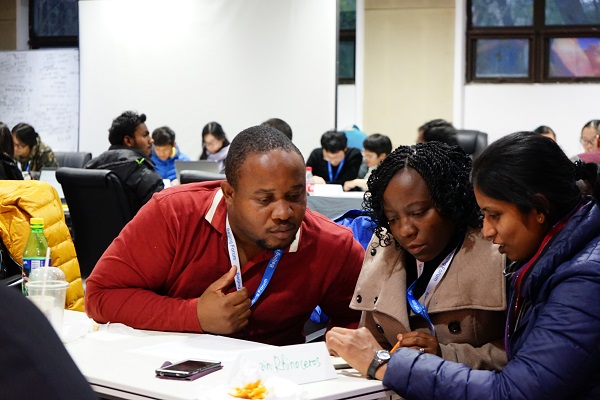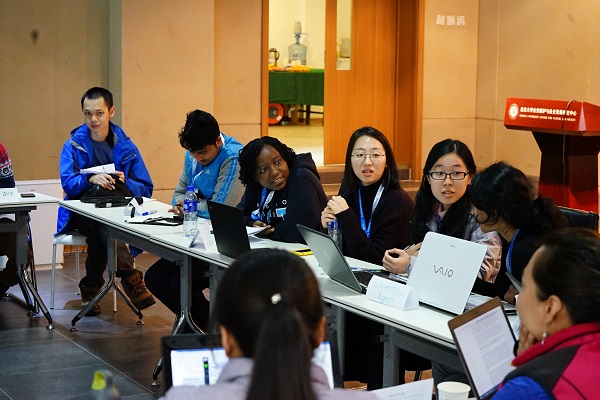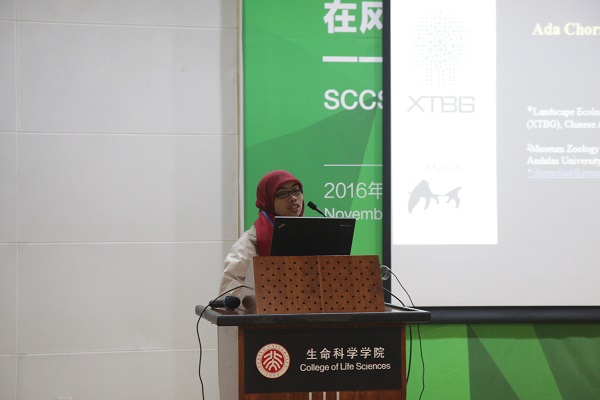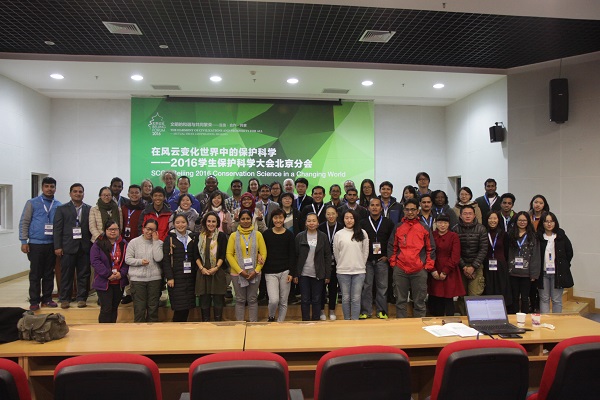On the 3rd of November 50 students from across Asia and Africa assembled to take part in the Student Conservation Conference Series in Beijing, amongst them Ada Chornelia, and Krizler Tanalgo from the landscape ecology group and Ming Li from the soil ecology group and under the chairmanship of Alice C. Hughes.
SCCS Beijing is always linked to, and has previously been fully funded by the Beijing forum, but due to various changes this year funding came from the Beijing forum, Peking University and the Society of Conservation Biology and the course lasted 6 rather than the former three days.
The purpose of the conference is to bring togeather a diverse array of conservation minded researchers to discuss the very best in conservation science, including practical implementation and political aspects of translating conservation science into realworld conservation action.
The first two days of the forum centred around student presentations during the day, spanning from the illegal wildlife trade, novel techniques, landscape ecology, case-studies of conservation, conservation social science, ex-situ conservation and others. With the first evening occupied by learning how to effectively present research, and the second evening showcasing an array of talks from researchers from the universities of Melbourne and Edinburgh on implementing sustainability initiatives in universities, decision making for conservation and making the most of little data and using expert advice in conservation planning.
On day three SCCS moved into the training component of the workshop, with conservation social science lead by Liu Wei (IIASA) and Yingyi Zhang (Flora and Fauna International China) which was followed by a sustainability game in the afternoon and group work in the evening to identify the key threats to each of the students own ecosystems.
Day four started talks on the Southeast Asian biodiversity Crisis and charting the Anthropocene in the morning from Alice, and students learning how to redlist ecosystems in the afternoon and evening, concluding with the students presenting their own ecosystem redlist assessments for their chosen ecosystems.
Following from this the students learned about conservation planning through an interactive “townhall meeting”, following the principles of Model UN debates each student had a role and their own interests and knowledge and had to develop an action plan for an environmental problem with many different views to try to balance, Krizler had the challenging role as Town Mayor, Ada a councilor and Ming Li a Botanic gardens worker.
Following from this the students learnt how to write policy briefs and popular science blogs to try to have more realworld impact with their research. Students continued working on these into the evening, and two have already been published:
https://tropicalbats.wordpress.com/2016/11/08/hopes-for-imperiled-bat-caves-of-south-central-mindanao-past-present-and-future-actions/
http://arif-sulfiantono.blogspot.com/2016/11/fight-climate-change.html
On the last day of the workshop we started with Terry Townsend from Birding Beijing who opened up the wonderful world of Citizen Science, and the amazing stories of the Beijing swifts and cuckoos: https://birdingbeijing.com/ ; https://birdingbeijing.com/beijing-cuckoo-project/
Students were enthralled by the amazing journeys these birds took, and the important role of citizen science in charting those journies.
Lastly Lu Zhi from Peking University talked of conservation in action across China, using casestudies from across the region and discussing the practicalities of translating research into conservation.
Lastly we closed with an international party and gift exchange between all participants, and a final thanks to the logistics arranger Hu Yanan and to Peking University and the Beijing forum for making the event such a success.








